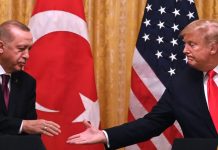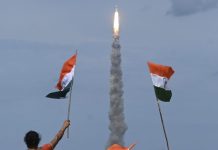India-China border conflict is now ‘split-wide open’. Chinese media has blamed the US for feeding off India’s “impulsiveness” and claims that “India’s importance in the US strategic chessboard is proportional to how the US views China as a threat” while simultaneously despising India’s democracy.
Global Times (GT), China’s state-run newspaper seen as the mouth-piece of the Chinese Communist Party has termed India’s retaliation to China’s growing presence in the Indian territory of Ladakh as India’s “impulsiveness”.
China’s eyeing US’s stand on India
The US had backed New Delhi hours after India’s armed forces notified that 20 of its army personnel were killed in a violent face-off with troops of China’s People’s Liberation Army at Galwan Valley at the Line of Actual Control (LAC).
A US State Department spokesperson offered condolences to the families of Indian security personnel who lost their lives and said – “We are closely monitoring the situation between Indian and Chinese forces along the Line of Actual Control.”
Washington’s support for India is viewed by China as a way to “woo New Delhi and create an illusion that India has the back of the US and other Western countries,” writes the GT. “Some hawkish forces in India have become increasingly impulsive and irrational in provoking conflict with China, partly resulting from US instigation and encouragement,” published the newspaper.
Previously, the newspaper had also stated that the “Indian hawks, biased media, right-wing political groups should stay rational amid China-India border clash.”
On one hand where the Chinese media warns that “The US will exploit every possible chance to encourage India to act on US interests, but chess pieces manipulated by the US may not achieve what they hope for.”
While on the other hand, experts talking to EurAsian Times reason that Beijing is itself accused of exploiting not only Asian but African developing or underdeveloped nations by making them fall for its debt-traps which has worldwide garnered a reputation for being “China’s debt-trap diplomacy”.
US-China-India Triangle
GT continuously maintains that the US’s strategic interests lie in India and that “India’s importance in the US strategic chessboard is proportional to how the US views China as a threat.”
Many observers opine that the US perceives India as a counter-force to balance China’s dominance in Asia. The opinion is also shared by China as the GT mentions that “India is considered a very important strategic pillar for the US to contain China in the Indo-Pacific region and a powerful counterbalance to rising China.”
China’s long-standing trade war with the US, along with the recent coronavirus pandemic that the US completely holds China responsible for has created a high-decibel conflict between the nations. Some defence and economics experts go to call it the re-emergence of “cold war” between both the economic super-powers.
Some other experts like V.P. Dutta, a distinguished Fellow at the Institute of Defence Studies and Analysis remarked – “There is no India-China-US triangle in Asia, yet let us not forget that our relations with the US are in a different category and will be necessarily more intense and more intimate than our relations with China.
Yes, USA would not wish for an Asian dominance by China and would hope for a balanced situation where it plays a crucial role. But then India too would like to see a situation in which no one power dominates.”
China despising India’s democracy
China which is a socialist republic being run by a single party attempted to give India’s democracy a black eye as the newspaper wrote – “But “the largest democracy” is just a label Western countries gave to India. Don’t forget, the US has also unscrupulously accused India of violating human rights.”
While condemning the US, the newspaper makes mention of an annual report by the US Commission on International Religious Freedom in April which named India a “country of particular concern” on religious freedom.
However, many commentators argue that China fails to take notice of the grave human rights violations that Beijing undertakes regarding religious freedom, freedom of speech, dissenters and minority groups like the Uyghurs.




